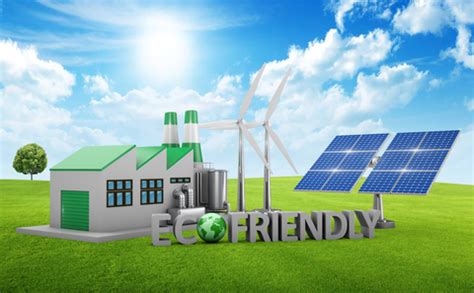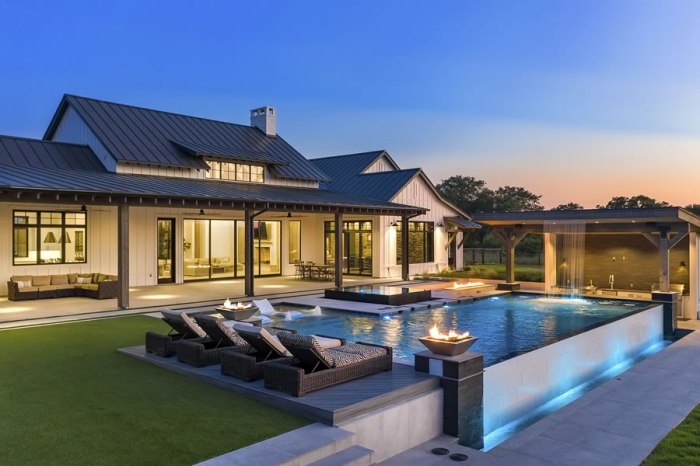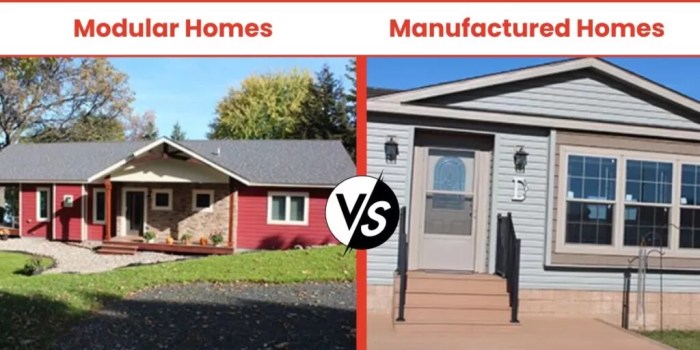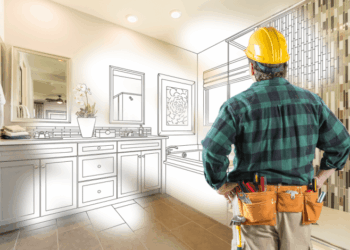
Exploring the realm of energy-efficient HVAC systems for eco-friendly interiors, this introduction sets the stage for a captivating journey. It delves into the significance of these systems in promoting sustainability and creating environmentally conscious living spaces.
As we navigate through the following sections, we will uncover the key components, benefits, design considerations, and technological innovations surrounding energy-efficient HVAC systems.
Overview of Energy-Efficient HVAC Systems
Energy-efficient HVAC systems are designed to minimize energy consumption while providing optimal heating, ventilation, and air conditioning for indoor spaces. These systems are crucial for creating eco-friendly interiors by reducing carbon footprint and energy costs.
Key Components of Energy-Efficient HVAC Systems
Energy-efficient HVAC systems typically include the following key components:
- High-efficiency HVAC units: These units are designed to operate more efficiently, using less energy to achieve the same level of heating or cooling.
- Programmable thermostats: These allow users to set specific temperature schedules, reducing energy waste when heating or cooling is not needed.
- Zoned heating and cooling: Dividing a building into zones allows for more precise temperature control, ensuring energy is not wasted on unoccupied areas.
- Energy recovery ventilation: This system helps to exchange indoor and outdoor air while minimizing energy loss, maintaining a comfortable indoor environment.
- Duct sealing and insulation: Properly sealed and insulated ducts prevent air leaks, ensuring efficient airflow and reducing energy waste.
Benefits of Energy-Efficient HVAC Systems
Energy-efficient HVAC systems offer a range of benefits that go beyond just cost savings. These systems are designed to optimize energy consumption while ensuring a comfortable indoor environment, leading to a healthier and more sustainable living or working space.
Cost Savings
Energy-efficient HVAC systems can significantly reduce energy consumption, resulting in lower utility bills for homeowners or businesses. By using advanced technologies such as variable-speed motors and programmable thermostats, these systems operate more efficiently and only consume energy when needed, leading to substantial cost savings in the long run.
Healthier Indoor Environment
Energy-efficient HVAC systems play a crucial role in maintaining a healthier indoor environment by improving air quality and ventilation. These systems are equipped with high-quality filters that can capture dust, allergens, and other pollutants, reducing the risk of respiratory issues and allergies.
Additionally, proper ventilation helps in removing stale air and introducing fresh outdoor air, creating a more comfortable and healthy indoor space.
Reduced Energy Consumption
- Energy-efficient HVAC systems use advanced technologies such as energy recovery ventilation and zoning to optimize energy consumption.
- By operating at lower speeds when heating or cooling is not required, these systems reduce energy waste and lower overall energy consumption.
- Smart thermostats allow users to schedule temperature settings based on occupancy patterns, further reducing energy usage.
Design Considerations for Eco-Friendly Interiors
Energy-efficient HVAC systems play a crucial role in creating eco-friendly interiors by integrating sustainable design practices. These systems not only contribute to reducing energy consumption but also help in maintaining a comfortable indoor environment while minimizing the ecological footprint of a building.
Integration of Energy-Efficient HVAC Systems in Interior Design
- Proper Placement: HVAC units should be strategically placed to ensure effective air distribution and circulation throughout the space
.
- Zoning: Implementing zoning systems allows for personalized temperature control in different areas, optimizing energy usage.
- Use of Smart Thermostats: Smart thermostats can regulate temperature settings based on occupancy patterns, further enhancing energy efficiency.
Role of HVAC Systems in Maintaining Comfort and Reducing Environmental Impact
- Temperature Control: Energy-efficient HVAC systems help in maintaining consistent temperatures, creating a comfortable indoor environment for occupants.
- Air Quality: These systems also play a crucial role in improving indoor air quality by filtering out pollutants and allergens, promoting a healthier living space.
- Reduced Carbon Footprint: By minimizing energy consumption, energy-efficient HVAC systems contribute to reducing greenhouse gas emissions, thus lowering the environmental impact of a building.
Impact of HVAC Design on Overall Energy Efficiency
- Proper Sizing: Ensuring that HVAC systems are properly sized for the building can prevent energy wastage and improve overall efficiency.
- Insulation: Proper insulation of ductwork and building envelope can help in minimizing energy losses, making HVAC systems more efficient.
- Maintenance: Regular maintenance of HVAC systems is essential to ensure optimal performance and energy efficiency, prolonging the lifespan of the equipment.
Technology and Innovation in Energy-Efficient HVAC Systems
Energy-efficient HVAC systems have seen significant technological advancements in recent years, leading to more sustainable and eco-friendly solutions for interiors.
Latest Technological Advancements
One of the latest advancements in energy-efficient HVAC systems is the integration of smart thermostats and sensors. These devices can monitor occupancy levels, adjust temperature settings based on usage patterns, and optimize energy consumption in real-time.
Another innovation is the use of variable refrigerant flow (VRF) systems, which allow for precise control of cooling and heating in different zones of a building. This results in more efficient operation and reduced energy wastage.
Furthermore, the development of geothermal heat pumps has enabled buildings to harness renewable energy from the ground, providing a sustainable heating and cooling solution that reduces reliance on traditional fossil fuels.
Comparison with Traditional HVAC Systems
Compared to traditional HVAC systems, these newer technologies offer improved energy efficiency, lower operating costs, and reduced environmental impact. Smart HVAC systems can adapt to changing conditions and user behavior, resulting in significant energy savings over time.
Additionally, VRF systems and geothermal heat pumps are more environmentally friendly alternatives that help reduce greenhouse gas emissions and promote a greener future for building operations.
Future Trends in Eco-Friendly HVAC Systems
Looking ahead, the future of eco-friendly HVAC systems is focused on further enhancing energy efficiency through advanced controls, predictive maintenance, and integration with renewable energy sources such as solar power.
There is also a growing emphasis on developing HVAC systems that are compatible with smart grids and can participate in demand response programs, contributing to a more sustainable and resilient energy infrastructure.
Overall, the trend towards eco-friendly HVAC systems for sustainable interiors is expected to continue, driven by technological innovation, environmental awareness, and the need for more efficient building operations.
Final Thoughts
In conclusion, the discussion on energy-efficient HVAC systems for eco-friendly interiors highlights the pivotal role these systems play in reducing energy consumption, enhancing indoor air quality, and shaping the future of sustainable living. Embracing these advancements is not just a choice but a commitment to a greener tomorrow.
FAQ Insights
How do energy-efficient HVAC systems contribute to cost savings?
Energy-efficient HVAC systems reduce energy consumption, leading to lower utility bills and long-term cost savings.
Can energy-efficient HVAC systems improve indoor air quality?
Yes, these systems enhance indoor air quality by efficiently regulating temperature and humidity levels, reducing the presence of allergens and pollutants.
What role does HVAC design play in overall energy efficiency?
HVAC design impacts energy efficiency by optimizing system performance, airflow distribution, and insulation to minimize energy wastage.
 Exploring the realm of energy-efficient HVAC systems for eco-friendly interiors, this introduction sets the stage for a captivating journey. It delves into the significance of these systems in promoting sustainability and creating environmentally conscious living spaces.
As we navigate through the following sections, we will uncover the key components, benefits, design considerations, and technological innovations surrounding energy-efficient HVAC systems.
Exploring the realm of energy-efficient HVAC systems for eco-friendly interiors, this introduction sets the stage for a captivating journey. It delves into the significance of these systems in promoting sustainability and creating environmentally conscious living spaces.
As we navigate through the following sections, we will uncover the key components, benefits, design considerations, and technological innovations surrounding energy-efficient HVAC systems.



![Immigration Physical Exam [Easy Process]](https://interior.kanalkalimantan.com/wp-content/uploads/2025/10/d3b59a59dd23b10f3c974c12952c93f5-120x86.jpg)









